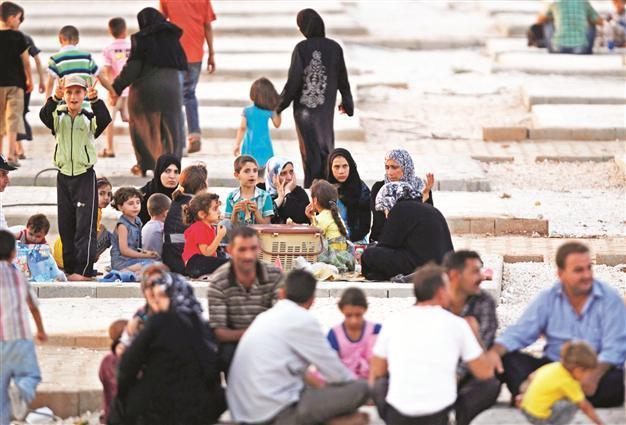Plans for ‘Alawite state’ caught on Turkey’s radar
METEHAN DEMİR ANKARA - Hürriyet

New Syrian refugees arrive at a stopover facility for breaking fast near the Turkish border town of Reyhanlı in Hatay.
Turkey has been struggling to cope with the growing number of refugees from Syria, but officials in Ankara are now having to contend with a new concern – reported efforts to make Hatay a part of a planned Alawite state.
Officials are concerned about a possible country, called the Alawite State to some or the “new Hatay” to others, that will be established in the Latakia - Hatay corridor.
To some, Hatay’s major Alawite population, who have close links to the Alawite community in Syria and many relatives in the troubled country, adds to such concerns. But mentioning these links as a major potential risk would definitely be unfair because the Alawites’ responsible attitude and the centuries-old, deep-rooted ties between Alawites and Sunnis will not allow any effort that aims to manipulate the sensitive balance between the two.
Many also believe that the chances of Hatay breaking away from Turkey are near zero, saying: Bashar al-Assad has no space to breathe. How can he have the power to establish such a state and get Mukharabat [the Syrian secret service] members to set the groundwork in Hatay for such an operation?” At the same time, some say the issue has gone beyond al-Assad and the Mukhabarat and that international intelligence operatives are testing the waters in the region to see “if such a state would be a better option.”
Hatay was once an independent state and such provocateurs may be hoping to make use of that history. From Sept. 7, 1938, to June 29, 1939, the Republic of Hatay flew its flag over the territory that is now the Hatay province. Locals in Hatay are said to be complaining about the Syrian refugees in the province, who reportedly harass the Alawite community, while the Turkish state is also aware of the situation. It is not easy to be successful in such a plan, but it is easy to create tension between the Alawites and Sunnis in the city through constant disinformation.
That is why the provocations, which could be more effective than the strongest chemical weapon, should be watched carefully, according to some. Turkey is reportedly more focused on this issue than the possibility of a Kurdish state in northern Syria.
















